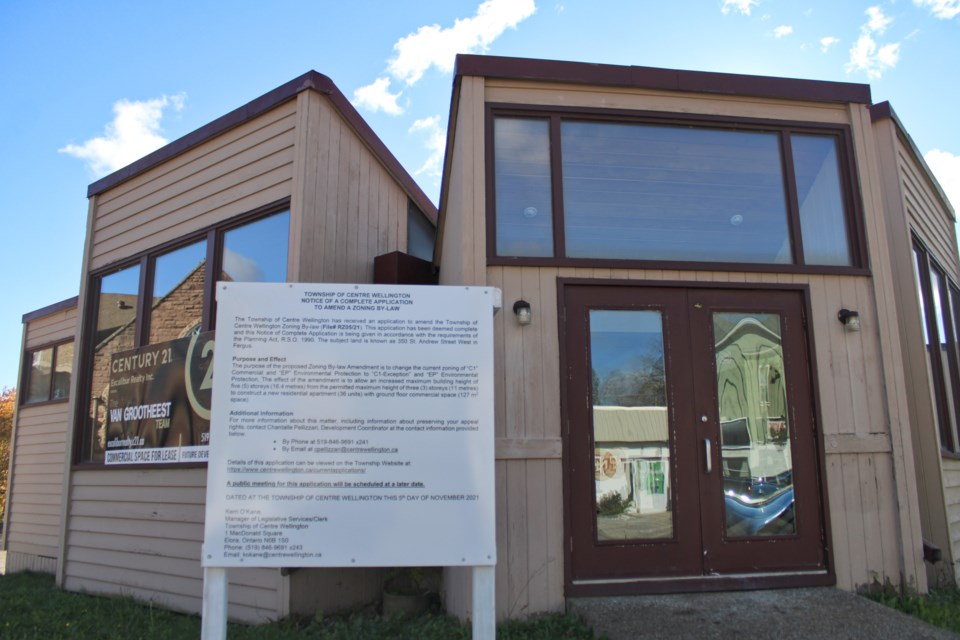Wellington County is expected to grow to approximately 160,000 people, and Centre Wellington Township is already considered as one of Canada's fastest growing rural cities in 2021.
Despite the recent rural housing roundtable meeting with represenetatives of the province, including the premier, Centre Wellington's mayor thinks that time is often wasted by having more discussions about solving the housing crisis, rather than actually creating proactive change.
“It's great that the Ford government is paying attention to rural and Northern communities as our housing needs are much different than larger and urban cities. Housing affordability is a country-wide issue. Now is not the time to marinate on the problem any longer; we really have to drive to action,” said Mayor Kelly Linton in a phone interview.
At last Sunday’s rural housing roundtable, Premier Doug Ford spoke virtually with smaller and remote municipalities on ways to build the right mix of housing, share best practices and discuss these municipalities’ unique experiences with the housing supply crisis.
Township of Guelph/Eramosa Mayor, Chris White, who is a member of the Rural Ontario Municipal Association Board and was in attendance, noted that the meeting was only a listening session and getting ideas off of each other in order to solve the housing crisis.
“There was some back and forth on the various issues we have in different municipalities. I don’t think anybody knows yet what this means for the county and its towns and townships," explained White in an interview.
"But we know that people are having troubles with getting housing and rentals especially with the population pressures we’re currently experiencing and going to experience."
Over the next 30 years, Wellington County is expected to grow to approximately 160,000 people and 70,000 jobs. Centre Wellington is already on the list of Canada’s fastest growing cities and towns in 2021 according to RBC Economics and Statistics Canada.
In the last year, Centre Wellington Township saw a 2.2 per cent increase in population. According to Statistics Canada, the township had a population of 31,366 in 2020. In 2021, the township had a population of 32,060. And this statistic is expected to grow as the township plans to have a population of 52,000 by 2041.
The roundtable meeting covered the provincial government’s housing policies under More Homes, More Choice: Ontario’s Housing Supply Action Plan. Ultimately, the policy works to make housing more affordable by increasing the supply of the full range of housing options, from missing middle, to high-rises and family-sized rentals, to single-family homes.
In 2021, the second year after More Homes, More Choice was implemented, Ontario saw the highest level of housing starts in history and the highest level of rental starts in thirty years with 100,000 housing units created.
The provincial government also appointed a housing affordability task force at the roundtable meeting with industry leaders, including those in not-for-profit housing, Indigenous housing, and economics.
The taskforce will provide the government with expert recommendations on additional measures to increase the supply of market housing, which will be published in a report in early 2022.
However, Linton believes that proactive measures should be taken now, instead of further discussing the issue, like what the county and township are doing to solve the crisis. He explained that the county is currently educating residents by using marketing strategies to inform real-life affordable housing problems and creating a mix of housing types in the county as well as in the township.
“Centre Wellington also has our healthy growth advisory committee, and they’re expecting to provide recommendations to council in the next couple of months on what we can do locally to increase the supply of rental units here,” said Linton.
“These recommendations will include developing rental units that are five storeys high rather than the current maximum of three storeys. We need to look at different ways we can increase supply and that means the look of our developments will change. I think we really have a chance in making a significant difference in our own township and county.”



